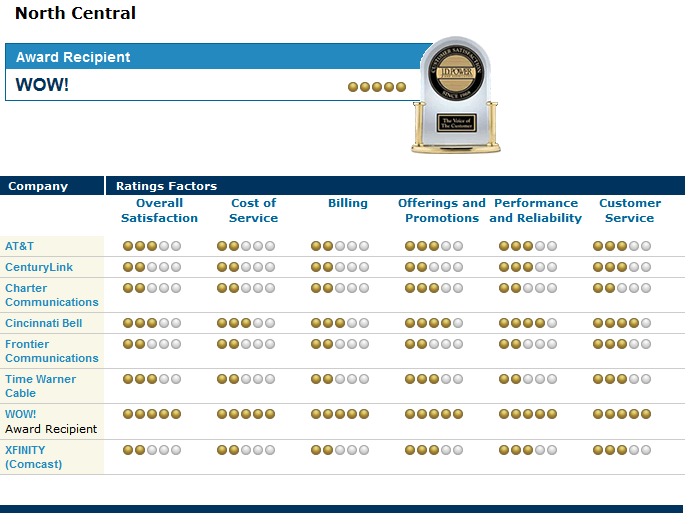Most cable operators are doing a better job of providing telephone service than traditional telephone companies, according to a new J.D. Power and Associates survey.
Among the worst providers across all regions were Frontier Communications, which scored dead last in the East and North Central regions, and cable operator Charter Communications, which won the lowest score overall for service in the western United States. Cox delivered the most consistently reliable service across three of the four regions it serves, although it was beaten by Bright House Networks in the south.
The results:



 The study measured customer satisfaction with both local and long distance telephone service in four regions throughout the United States. Five factors were examined to determine overall satisfaction: performance and reliability; cost of service; billing; offerings and promotions; and customer service.
The study measured customer satisfaction with both local and long distance telephone service in four regions throughout the United States. Five factors were examined to determine overall satisfaction: performance and reliability; cost of service; billing; offerings and promotions; and customer service.
Satisfaction with performance and reliability-the most influential factor contributing to overall satisfaction-has declined by 6 percent to an average of 7.4 (on a 10-point scale) in 2011 from 7.9 in 2011. Within this factor, satisfaction with the service provider’s ability to keep outages to a minimum has experienced the greatest decline.
“The brutal winter weather that plagued much of the country clearly took a toll on service levels,” said Frank Perazzini, director of telecommunications at J.D. Power and Associates. “In fact, the proportion of customers who contacted customer service to report an outage jumped to 21 percent in 2011 from 12 percent in 2010.”
According to Perazzini, a key driver for mitigating losses in satisfaction due to outages is effectively managing customer expectations regarding service restoration. On average, customers who experience an outage are advised that service will be restored within 30 hours, while actual service restoration time averages 25 hours. Overall satisfaction among customers whose service was restored approximately three hours earlier than the time quoted by the service provider averages 705 on a 1,000-point scale. In comparison, among customers whose service was restored three hours after the estimate given by the provider, satisfaction averages 591.
The study also finds that among customers who use an alternative phone service (for example, cellular or Internet service, rather than wireline), the proportion who replace wireline telephone calls with cell phone calls, texts and email remains relatively unchanged in 2011, compared with 2010. However, use of Internet calling services such as Skype or Vonage has increased to 21 percent in 2011 from 16 percent in 2010. Customers who use Internet calling services are significantly less satisfied with their telephone provider (622 on average, which is 14 index points below the industry average of 636) and are more likely to switch telephone providers (23% vs. the industry average of 16%).


 Subscribe
Subscribe